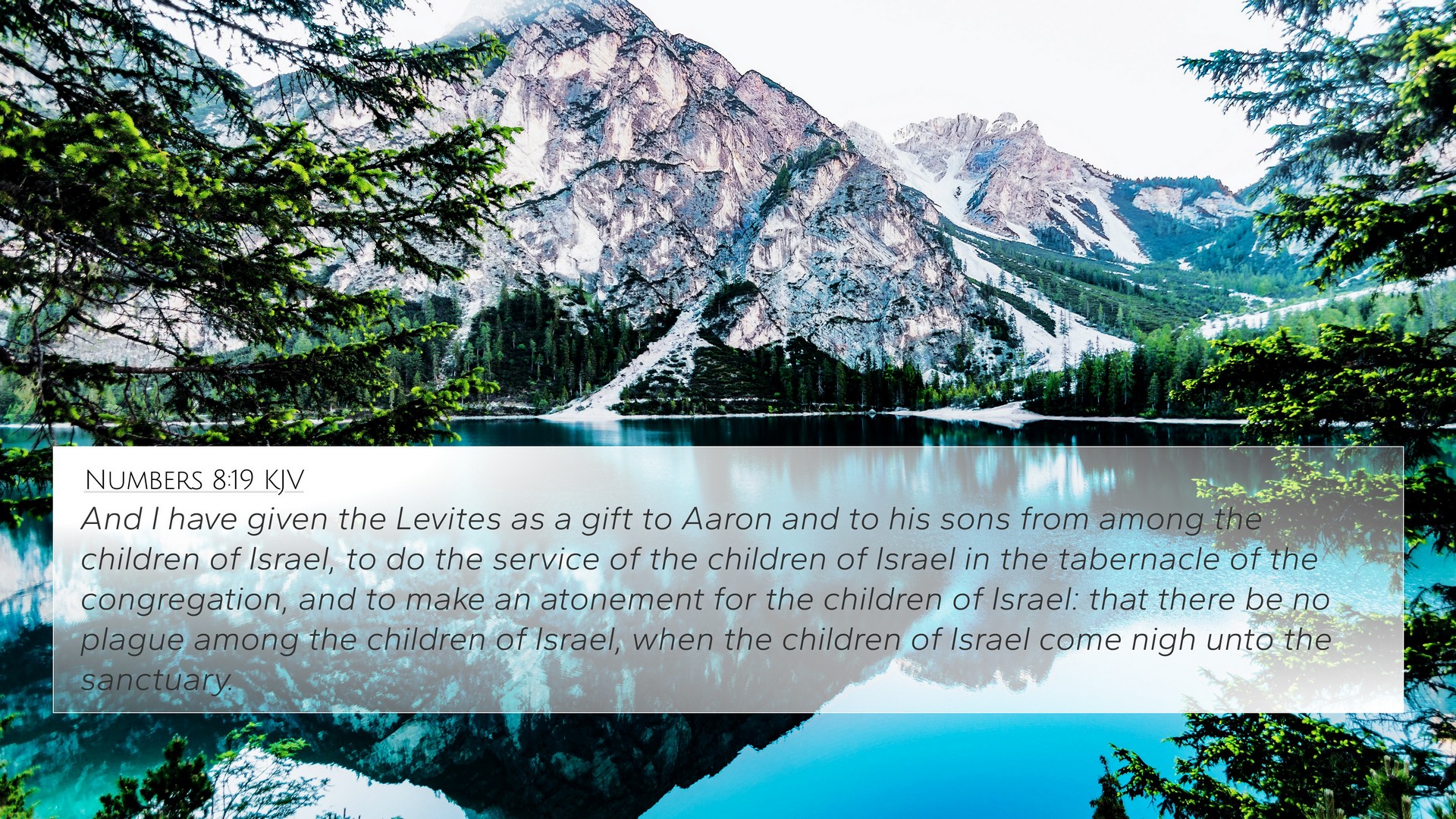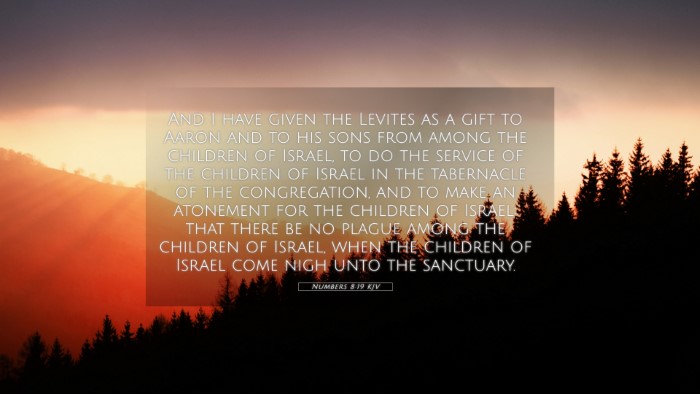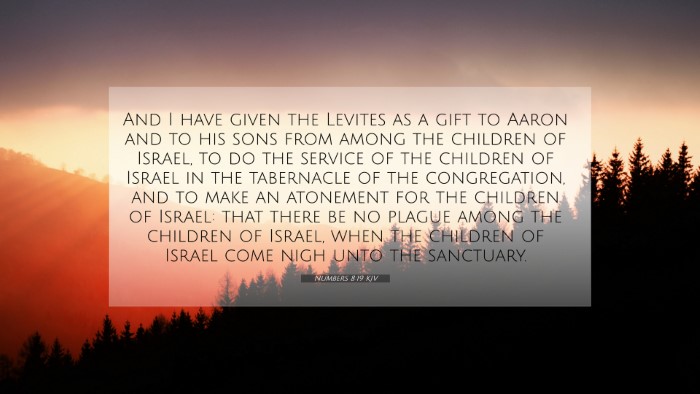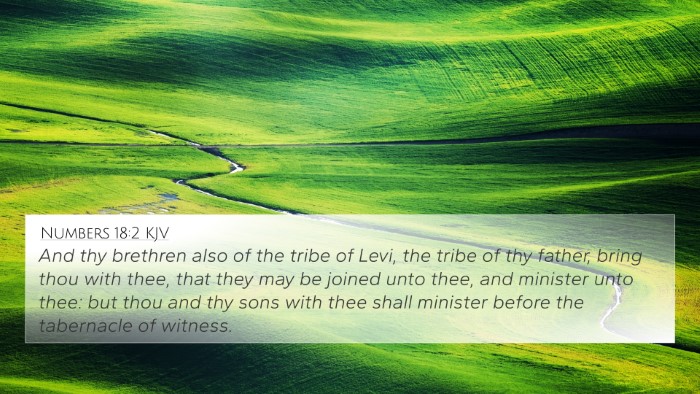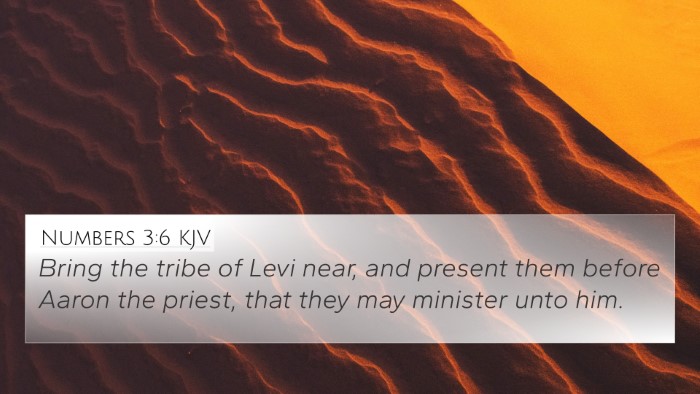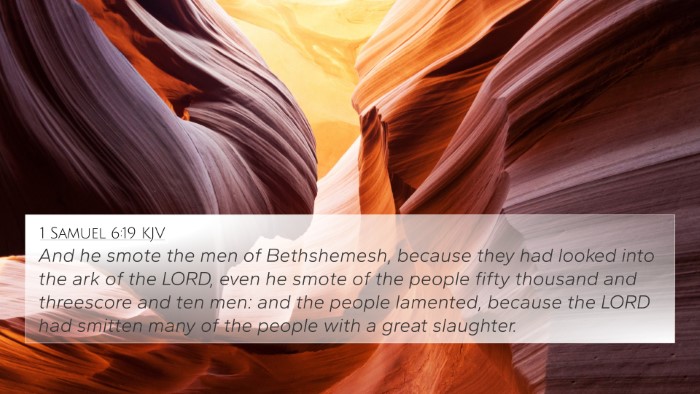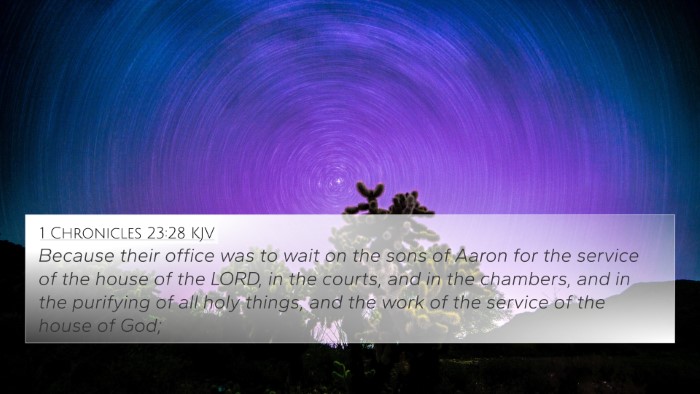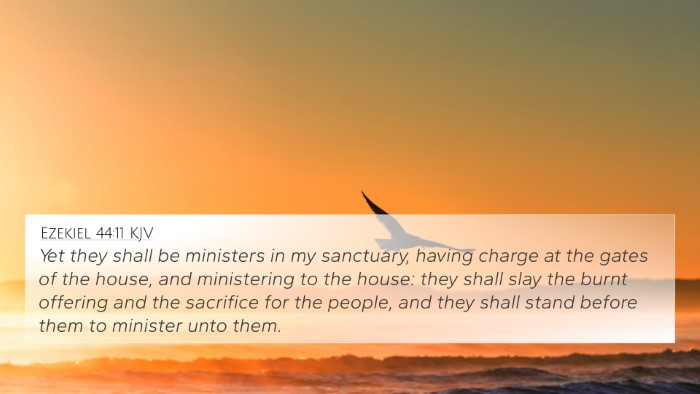Understanding Numbers 8:19
Verse: Numbers 8:19 - "And I have given the Levites as a gift to Aaron and his sons from among the Israelites, to do the work assigned to the Israelites at the tent of meeting and to make atonement for them so that no plague will strike the Israelites when they go near the sanctuary."
Summary of the Verse Meaning
This verse highlights the significant role of the Levites in the service of the Israelite community and their sacred duties assigned to them. The Levites function as a mediating presence between God and the people, tasked with the maintenance of the tabernacle and offering sacrifices to atone for the sins of the Israelites.
Commentary Insights
-
Matthew Henry's Commentary:
Henry emphasizes the Levites' divine appointment and their role in protecting the Israelites from divine judgment. He underscores that God's provision of the Levites is a means for maintaining holiness among the people, allowing them to interact with the sacred without facing devastation due to their iniquities.
-
Albert Barnes' Notes:
Barnes draws attention to the idea that the Levites’ work is not just ritualistic but is also functional for the whole community. He points out that their presence serves as a guarantee for the people's safety and their relationship with God.
-
Adam Clarke's Commentary:
Clarke highlights the Levites as a "gift" and discusses their unique position among the tribes of Israel, serving the spiritual needs of the people. He notes that the Levites stand in stark contrast to other tribes due to their dedicated service to the worship of God.
Related Bible Verses
- Hebrews 7:11-12: Discusses the priesthood and the change that comes in the order of priests, linking it to the importance of structured divine service.
- Leviticus 10:10-11: Speaks of the distinction between holy and common, which reinforces the necessity of the Levites in guiding the people.
- 1 Peter 2:9: Addresses believers as a “royal priesthood”, echoing the theme of dedicated service to God and the community.
- Exodus 28:1: Mentions the anointing of Aaron and his sons, providing the background for the Levitical priesthood.
- Numbers 1:47-54: Gives the significance of the Levites being counted separately for their particular role.
- Psalms 78:68-71: Reflects on God choosing the tribe of Levi for leading His people.
- Malachi 2:4-7: Communicates the covenant God made with Levi and the expectation of the priest to serve righteously.
Thematic Connections
This verse emphasizes themes of:
- Divine Appointment: The Levites are appointed by God to serve and mediate on behalf of the people, showcasing a structured approach to worship.
- Mediation and Atonement: The function of the Levites is crucial in making atonement for the Israelites, reflecting the principle of reconciliation with God.
- Community Safety: The involvement of Levites is depicted as essential for the safety of the people as they approach the divine sanctuary.
Cross-Referenced Themes
The concept of priestly duties and intercession is a recurrent theme throughout the Bible. Here are additional references that illustrate this:
- Romans 12:1: Calls believers to offer their bodies as living sacrifices, integrating the New Testament priestly service.
- 2 Corinthians 5:18-20: Discusses the ministry of reconciliation, parallel to the atoning work of the Levites.
- John 14:6: Jesus as the way reflects the ultimate priestly role of mediation between God and humanity.
Tools for Bible Cross-Referencing
When studying verses like Numbers 8:19, utilizing tools can greatly aid in understanding. Here are some useful resources:
- Bible Concordance: A tool to find where specific words or themes occur throughout scripture.
- Bible Reference Resources: Various commentaries and study guides that provide context and interpretation.
- Cross-Reference Bible Study: Systems allowing readers to trace themes and concepts across different scriptures.
Conclusion
In conclusion, Numbers 8:19 serves as a key verse that illustrates the Levites’ vital role in the Israelite community as mediators of God's will. Their duties signify a sacred trust and responsibility that parallels the New Testament understanding of the priestly role of all believers in Christ. Studying this verse within the broader context of Scripture provides insight into the continuity of God’s plan for His people, revealing enduring themes of mediation, divine service, and communal holiness.
